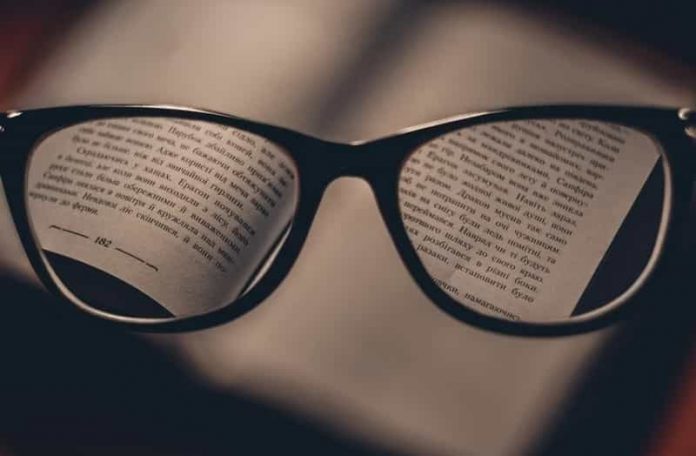How To Protect Your Eyes And Eyesight With The Help Of Eyeglasses

All of us should be aware of the importance of protecting ourselves from the problems that may affect our lives’ quality. Taking care of our health is the topmost duty in this regard. One of the most sensitive organs in our body facing the most risks is our eyes. Extended screen times are among the biggest threats to our vision. Therefore, it is important to know how we can save this precious blessing.
Won’t you agree with me if I say that you can do better at home, at work, or behind the wheel if you have good vision? That’s why it’s essential to take measures to ensure that your eyesight remains at its highest. A routine eye exam is the most effective way to safeguard your vision – and it’s a simple step to take. If your eyes are exposed to mobile, laptop, or other such gadgets, your doctor may advise you to use prescription glasses for blue light or prescription medications such as eye drops and vitamins.
How is our eyesight at risk?
Age-related disorders, including macular degeneration, diabetic retinopathy, and glaucoma, are the primary causes of blindness and poor vision. Additionally, UV contact increases the chances of substantial deterioration. Choose eyeglasses that protect your eyes up to 99% of UV A and B rays.
Refractive errors and eye injuries are other threats that our eyes may suffer from. Protective eyewear can help prevent this. Standard eyeglasses do not always offer sufficient protection from hazards, and if they break accidentally, they can shatter, causing more harm than good. Therefore, choosing wisely is crucial.
Role of eyeglasses in eye and eyesight protection:
The question under debate is, can eyeglasses improve your vision. Yes, glasses can help you see better, but only when you’re wearing them. To get a sharp vision you’d have to address the underlying cause of your vision problem. It can be a physical change to your eye. Glasses or contact lenses correct vision by allowing the eye to concentrate light in the retina’s correct location, resulting in a clear image.
The most popular aid in correcting certain refractive errors is eyeglasses. Your ophthalmologist will give you the prescription number required to produce lenses that will correct the way your eye bends light. For example, if you’re farsighted, your cornea can have a bit of a curving pattern, which prevents your eyes from refracting light correctly. A prescription with a +plus sign corrects this error.
Why eyeglasses?
Wearing glasses has many advantages. A UV-blocking coating on your prescription glasses will correct your vision while also shielding your eyes from ultraviolet (UV) radiation. Most eyeglasses will last up to three years with proper care, so you won’t have to change your frames as often. Hence, you can go economical and stay safe.
See clearer
Eyeglasses aid us to see objects clearly, especially when we have refractive errors or age-related vision problems. Hyperopia, astigmatism, and myopia are the most common conditions corrected with the help of eyeglasses.
Eyeglasses make it easier for us to read and watch
People with vision problems face difficulty in reading newspapers and books. Reading glasses or other prescription eyeglasses can help you read and see more clearly.
Protection from the sun rays
UV radiation from the sun is harmful to our eyes. Wearing sunglasses or eyeglasses with UV blocking coating is essential. Furthermore, polarised lenses are also used in sunglasses, which help to reduce horizontal glare.
Corrective or vision-improving lenses:
Usually, two types of lenses are used to correct or improve vision.
Eyeglasses lenses:
Feeling difficulty in seeing distant or near objects are symptoms of refractive errors. A bent cornea may also cause blurring. Glasses correct vision problems by helping the eyeball focus the light on the retina’s correct point. As everyone has different eyes, a pair of glasses that aids one individual see clearly can make another person’s vision hazy. Therefore, it is advised to consult your eye doctor to get your prescription eyeglasses.
Contact lenses:
More or less, contact lenses work in the same way as the lenses in eyeglasses do. The difference between eyeglass and contact lenses is in the material used for their construction and usage method.
Is it true that wearing glasses improves your vision?
The answer is, it certainly does. In fact, wearing eyeglasses or contact lenses is the easiest, the most cost-effective and the only non-invasive way of correcting your eyesight. It is wrongly perceived that prescription lenses weaken your vision, but there is no history of eyeglasses harming the actual eye or being the cause of your vision loss symptoms.
The most common myths associated with prescription glasses are
- Eyes start depending on help to see clearly
- Eye muscles atrophy
- Not forcing the eye to focus can worsen the refractive errors
- Wearing the wrong prescription damages eye
These pervasive myths have no evidence. The scientifically proven reality is completely the opposite. Hence, it is crucial to follow your optometrist’s instructions to stabilize your vision.












Comments (2)
Can’t be true. I’ve been investigating this matter for a few years getting data from the most expert websites such as compacom.com, nerdwallet.com, finder.com, etc and I’ve never met such an opinion. Check it out yourself.
Magnificent items from you, man. I’ve consider your stuff previous to and you’re just too great. I actually like what you have obtained here, really like what you’re stating and the way in which by which you say it. You make it enjoyable and you still care for to stay it wise. I cant wait to learn much more from you. That is really a great site.